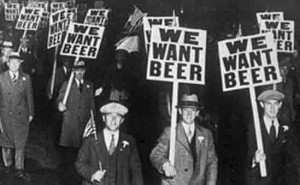
Parent: “I forbid you to do X.”
Teenager: “Okay.”
We all listened to our parents without question back in the day and those of us who reproduced had all our teenagers respond the same today; that’s how it goes right? After your laughter subsides, please continue…
Perhaps you can recall, or have a so-called “friend” who can recall, some instance of creatively avoiding some parental mandate. “Don’t date that person” and “Don’t leave your room” statements led to “behind the bleacher rendezvous” and “sneaking out for a party” type behaviors… or something akin to it based on your particular scenario. But in the end, regardless of severity, we all found innovations to avoid parental prohibitions.
Resisting authority is nothing new; wasn’t America founded on that principle?
The Revolutionary War was actually revolutionary. Due to an overwhelming established military opponent, the Continental Army was forced to innovate beyond traditional line fighting and “guerilla warfare” was utilized.
 Perhaps the most popular example of average Americans resisting authority came during the Prohibition Era of 1920-1933. Putting aside the imagery of movies like “The Untouchables,” moonshine & home breweries took on bigger, albeit clandestine, role in American innovation. Also of note during prohibition was the production of sacramental wine for churches rose by hundreds of thousands of gallons; coincidence or innovative? Thoughts?
Perhaps the most popular example of average Americans resisting authority came during the Prohibition Era of 1920-1933. Putting aside the imagery of movies like “The Untouchables,” moonshine & home breweries took on bigger, albeit clandestine, role in American innovation. Also of note during prohibition was the production of sacramental wine for churches rose by hundreds of thousands of gallons; coincidence or innovative? Thoughts?
Obviously, current parallels to the ongoing national debate regarding marijuana exist, however, as it’s politically volatile I’ll rely on the history of alcohol’s prohibition to suffice as example enough.
The point is, generally speaking, we have all endured some level of being told no (prohibition) and found some way of turning it into yes (innovation).
So why do we struggle to apply that towards our day? Here’s what I mean:
Over the last week I heard an analogy regarding taxes. We all practice “tax avoidance” up to the point where it crosses into “tax evasion.” One involves using the knowledge of the rules to benefit your efforts, whereas the other crosses into criminal behavior. If we can creatively find ways to help ourselves, why not others (aka customers) who crave assistance? Take the rule book, guidance, SOP or policy and treat it like your parents telling you no and then find the innovative yes in their specific situation. Your ability to do so is indicative of how well you know your job (which others will notice), but more importantly you just might be the innovator of the next trend.
Paul Grugin is part of the GovLoop Featured Blogger program, where we feature blog posts by government voices from all across the country (and world!). To see more Featured Blogger posts, click here.





Thanks for sharing Paul! This is a great correlation!
Thanks Rachel. Intent was to put a new twist on an old adage (lemons into lemonade); glad you got it.